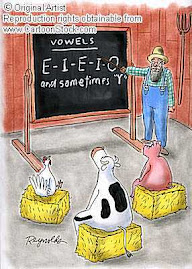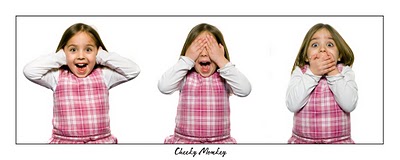Today a few answers concerning
a discussion we had in class last week.
THESE ARE THE QUESTIONS that I asked :
What is the difference between being bilingual and
being fluent?
Is there a difference?
If someone can speak/write in a second language
pretty well,
but not fluently, are they bilingual?
So here we
go! This is the information I got from different
responses. These answers are said and put differently but very similar in their
experiences.
As a
Frenchman, I'd say my English is fluent because I don't need to think in French
when I speak English. Nonetheless, I'm surely not bilingual.
Mastering
a language is not only being able to write or say proper words. It means you
don't have to think before to know how to say something. It also means, and
this might be the main difference between being fluent and bilingual, that you
have all the required cultural background to understand and to use idioms,
proverbs, puns, and those kind of peculiarities.
For me,
I’m Australian, bilingualism is the ability to speak two languages equally
well. If, when you speak French, the French think you are French, and when you
speak English, the English think you are English, then you are truly bilingual.
BILINGUAL?
FLUENT? NEITHER?
Here is
another:
and the reactions of a bilingual person .
This first part is anecdotal:
When I was
a small child, my aunt started
teaching me words that she learned in her high school Spanish class. Basic
counting, the alphabet, body parts, words I had only learned in English a year
or two before. In elementary school, local college students would come
once/week for an after school program where they would try to teach us a few
words. It wasn't until high school that
I had the opportunity to take a real Spanish class. I completed 3 years of high
school Spanish, spent a year as an exchange student in Costa Rica, returned the
States and Minored in Spanish in college. Still, every opportunity I had to
speak Spanish was a struggle. The person
speaking to me was required to slow their speech pace to a crawl, and I had
to rack my brain to put together a sentence. Ok… it wasn't quite that bad,
but pretty close.
Through the joy of a
store mis-pricing their product, and my friend, Will, being in the right place
at the right time, I got (as a Christmas present) all five (5) levels of the
Rosetta Stone Program. When I made the decision to move back to Costa Rica
With no one to really
practice with, I wasn't sure if my skills had actually improved or not. I jumped on my plane, flew down to CR and
hoped for the best. It only took me (and
my Tica family) a couple weeks to realize the difference in my abilities.
1. Suddenly
I was following conversations without
feeling
exhausted afterward.
2. Eventually,
I was actually contributing to con-
versations,
and not just when I was asked a direct
question.
My hard work had paid off.
Now, don't get me
wrong. Rosetta Stone is not necessarily the key to mastering a language (though
I do believe its method is great and it is the reason I can speak more fluently
now). And in fact, I haven't even come close to mastering Spanish. While I
consider myself fully communicative (I almost never find myself in a position
where I don't know what's going on and/or can't get my point across) I don't
consider myself fluent.
What
defines fluent?
Is there a
difference between fluent and bilingual?
If I'm
"fully communicative" should I be calling myself fluent,
rather than "Conversationally Fluent"
which is the term I generally prefer to use.
rather than "Conversationally Fluent"
which is the term I generally prefer to use.
Can I ever
truly be bilingual if
I didn't grow up speaking the language?
I didn't grow up speaking the language?
The definition of
"fluent" according to Merriam-Webster http://www.merriam-webster.com/ is:
b. Capable of moving with ease and grace
b. Effortlessly smooth and flowing
c. Having or showing mastery of a skill or
subject
Focusing on number 2, generally I'm capable of using
Spanish easily, though not always accurately (from a grammatical stand point).
I'd say most of the time I'm can achieve smooth and flowing, though not
effortlessly. I certainly don't display mastery.
The relevant definition of
"bilingual" is "using or being able to use two languages
especially with equal fluency." I can use two languages, but not
with equal fluency, but it says "especially with..." so, not always.
However, http://www.learnersdictionary.com
(an ESL dictionary by Merriam-Webster) says it's
simply, "able to speak and understand two languages." Well I can
definitely do that!!!
So am I bilingual, but not fluent? I've always thought
someone who is bilingual is someone who speaks two (2) languages as if they
were both their native language. As if mastering Spanish isn't enough, now I
don't even know how to define my Spanish capabilities!
A FINAL COMMENT, Jay Wile said...
I know what you mean about being exhausted trying to follow conversations. Back when I was a grad
student, I would try to talk to my PhD advisor in German. After 5-10 minutes, I
would be so mentally wrung-out that I would say, "Zurück zu Englisch,
bitte," which is bad German for "Back to English, please!" My
advisor would chuckle and effortlessly go back to English.
I admire the fact that you have become "fully
communicative" in another language. I never was able to do that.













.jpg)
No comments:
Post a Comment